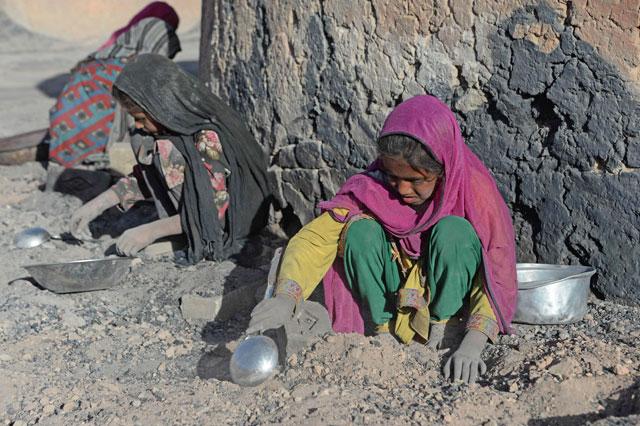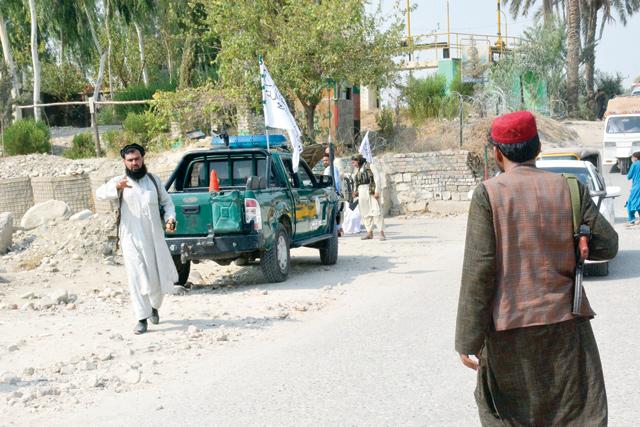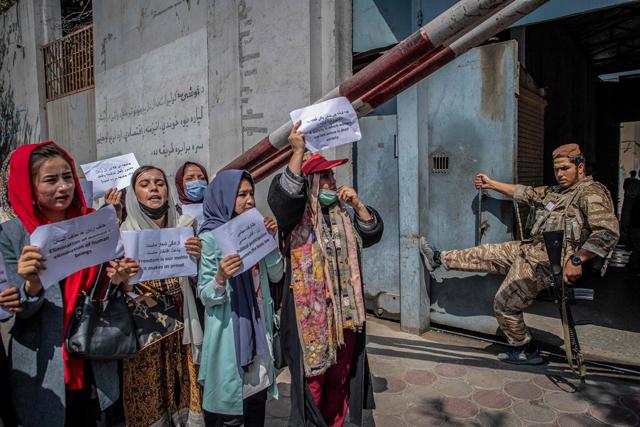You are here
Nearly half Afghan children out of school, number rising for first time in years
By Reuters - Jun 03,2018 - Last updated at Jun 03,2018

In this photograph taken on Friday, Afghan children collect coal from a brick factory for their home on the outskirts of Kabul (AFP photo)
KABUL, Afghanistan — Nearly half of all children in Afghanistan are out of school due to conflict, poverty, child marriage and discrimination against girls, with the number rising for the first time since 2002, humanitarian organisations said in a report on Sunday.
Spreading violence has forced many schools to close, undermining fragile gains in education for girls in a country where millions have never set foot in a classroom.
Some 3.7 million children between the ages of seven and 17, or 44 percent, are out of school, 2.7 million of them girls, Education Minister Mirwais Balkhi told a seminar, explaining a study conducted by UNICEF, USAID and the independent Samuel Hall think tank.
The Taliban, seeking to oust the US-backed government and return the country to strict Islamic rule after their 2001 ouster, are adamantly opposed to education for girls and threats from Daesh have forced the closure of dozens of schools.
Without mentioning the Taliban or Daesh, Balkhi said there were "many reasons" for children not going to school.
"Education of children is the most important development in all human communities," he said. "It is the most important tool in fighting war, poverty and unemployment."
In the worst affected provinces, up to 85 per cent of girls are not going to school, the aid groups said. They did not give specific time periods or comparisons.
In April this year, militants set ablaze two schools and widespread violence had led to closure of hundreds of private schools.
"Business as usual is not an option for Afghanistan if we are to fulfil the right to education for every child," said Adele Khodr of UNICEF in the report.
"When children are not in school, they are at increased danger of abuse, exploitation and recruitment."
One teenage girl, Ziwar, from central Daikundi, one of the safest provinces in the country, said she had been at school until she was 14.
"I can read and write. I can write a letter," she told seminar delegates. "I learn from books. I want to continue my studies. I want to become a doctor in the future."
In Mazar-i-Sharif, capital of the northern province of Balkh, one girl was killed and 20 were injured in a stampede at a school as they rushed to collect their university entrance exam passes on Sunday.
Related Articles
ZINDAH JAN, Afghanistan — Children sit shoulder to shoulder crammed in rows on the floor of a shipping container with lesson books in their
KABUL — Two people were killed when three blasts struck the Afghan city of Jalalabad on Saturday, at least one of which targeted a Taliban v
KABUL — Fears were mounting in Afghanistan on Monday as the Taliban tightened their grip on women's rights, slashing access to work and deny


















